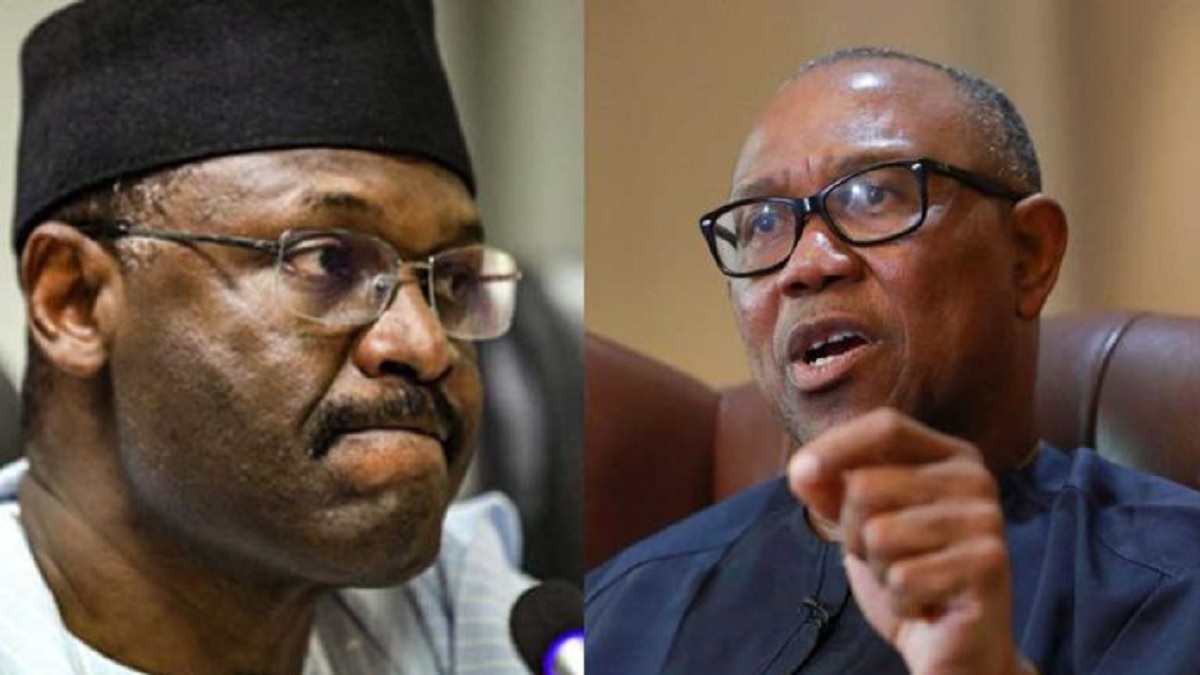In his reply to the Independent National Electoral Commission’s preliminary objection against his petition at the Presidential Election Petition Tribunal Court in Abuja, the Labour Party presidential candidate, Peter Obi, has accused the electoral umpire of not maintaining neutrality in the case.
THE WHISTLER earlier reported that INEC in its objection filed by A.B Mahmoud SAN, had disagreed with Obi’s assertion that the 2023 presidential election results ought to be transmitted electronically through the Bimodal Voter Accreditation System (BVAS) machine to a public result viewing portal known as the IReV.
INEC had also countered Obi’s submission that Tinubu, having not scored 25% of votes cast in the Federal Capital Territory, does not qualify to be declared winner of the 2023 polls in line with Section 134 of the 1999 Constitution.
The section reads: “(1) A candidate for an election to the office of President shall be deemed to have been duly elected, where there being only two candidates for the election – (a) he has the majority of votes cast at the election; and (b) he has not less than one-quarter of the votes cast at the election in each of at least two-thirds of all the States in the Federation and the Federal Capital Territory, Abuja.”
In FCT, Obi scored 281,717 votes to defeat Tinubu and Atiku Abubakar who had 90,902 and 74,199 votes, respectively (less than 25%).
But INEC’s lawyer, Abubakar Mahmoud SAN, had told the court that “FCT has no special constitutional status over and above the other 36 states of the federation to require a candidate in the presidential election to obtain at least 25 per cent of the votes cast in the FCT before being declared winner of the presidential election.”
Meanwhile, the electoral umpire admitted that while it is true that collation officers are required to ascertain that the number of accredited voters matches the number captured in the BVAS and that the votes of parties correspond with the result electronically transmitted directly from the polling units before collation of results, it’s collation officers are allowed by law to use INEC’s copy of the results from the polling unit in the event that no results have been electronically transmitted from a polling unit.
In his response before the court, Obi took a swipe at INEC, accusing it of forgetting its role as an impartial umpire.
“INEC, forgetting its role as an electoral umpire, gave a notice of preliminary objection to challenge the alleged incompetence of the petition.
“The global best practices for electoral umpires in national elections is that an electoral umpire must avoid creating the impression that it has no respect for neutrality in an electoral contest between candidates,” Obi’s reply stated.
Obi’s legal team further contended that previous rulings and decisions of the Court of Appeal repeatedly admonished INEC to remain neutral in electoral proceedings, adding that it amounts to “embarrassment” for INEC to “adorn the garb of a contestant” in an election it conducted.
With respect to INEC’s argument that 25% percent votes from FCT is not a requirement in the 2023 presidential election, Obi’s team maintained that the electoral umpire’s contention is “not true” and that the 1999 constitution makes it mandatory.
Regarding the mode of collation and result declaration, Obi cited a Federal High Court judgement which held that the BVAS is “core” to the election.
“It is not true that INEC compared the results of the election with any hard copies and counter-part copies issued to Nigeria Police and the political party agents as claimed in paragraph 73 of the 1st Respondent’s (INEC) reply,” Obi’s team submitted.
